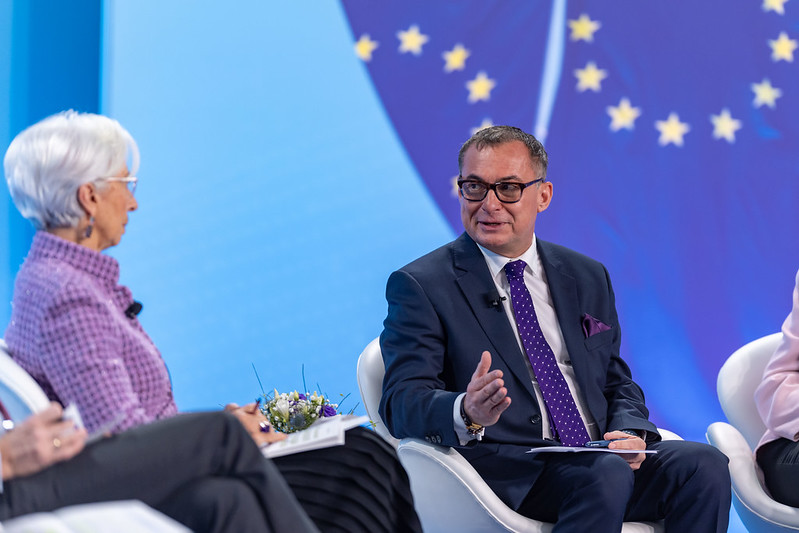By Marta Vilar – MADRID (Econostream) – European Central Bank Governing Council member Joachim Nagel said on Monday that the ECB should remain cautious and flexible in its next steps.
In a speech at the Frankfurt Euro Finance Summit, Nagel, who heads the Deutsche Bundesbank, said that ‘[g]iven the current uncertainty, cautious monetary policy and communication are still recommended.’
Uncertainty was already too high and the ECB could not contribute to increasing it, he said.
The ECB should remain ‘flexible’ given how quickly developments can change, according to Nagel, who said that it was not ‘sensible’ to pre-commit on an interest rate cut or a pause.
‘We should continue to make decisions from meeting to meeting based on the data and not rush into anything’, he added.
The tariff increases incorporated in the baseline scenario could cost Germany 0.75% of GDP in the medium term, according to Nagel.
However, a halt of or an escalation of trade tensions could be ‘possible at any time’, he said.
Despite it not being clear how the Germany’s fiscal plans would ultimately be implemented, the Bundesbank expected these additional expenditures to increase German GDP by 0.75% in 2026 and 2027.
‘It is still difficult to assess how the situation in the Middle East will develop following Israel's attack on Iran’, he said.
The impact of the conflict in the Middle East on the economy could not yet be estimated, he said, but if it turned out to be a ‘long-lasting, serious conflict’, then oil prices would surge.
‘The economic outlook could then be noticeably different from what I am telling you today—both in terms of the economy and prices’, he added.
It was still unclear how trade tensions and fiscal policies would affect inflation, according to Nagel.
‘For example, lower economic growth caused by the tariff conflict can further reduce inflationary pressure’, he said. ‘Conversely, tariff-related fragmentation of supply chains can cause higher costs, which then lead to rising prices.’
In the short-term, Germany’s additional spending would lower inflation if measures like the reduction of electricity taxes are introduced, he said, but in the medium-term it could increase aggregate demand and impact inflation.
‘[T ]he 2% mark is likely to be reached this year’, said Nagel about the inflation target.
The ECB expected inflation to stay at around current levels in the coming months, according to Nagel, who said he was ‘confident’ about reaching the target ‘sustainably’.
‘This applies even if the inflation rate may temporarily fall below 2% next year, primarily driven by lower energy prices’, he said. ‘A sustained undershoot is unlikely. Underlying inflation, and especially the increase in services prices, is too high for that.’
Related articles:
- ECB’s Nagel: We Can Now Take Time to Ponder Next Steps
- ECB’s Nagel: Inflation Target ‘Finally Within Reach’
- ECB’s Nagel: Rates ‘Certainly’ No Longer Restrictive, Must Remain ‘Cautious’

